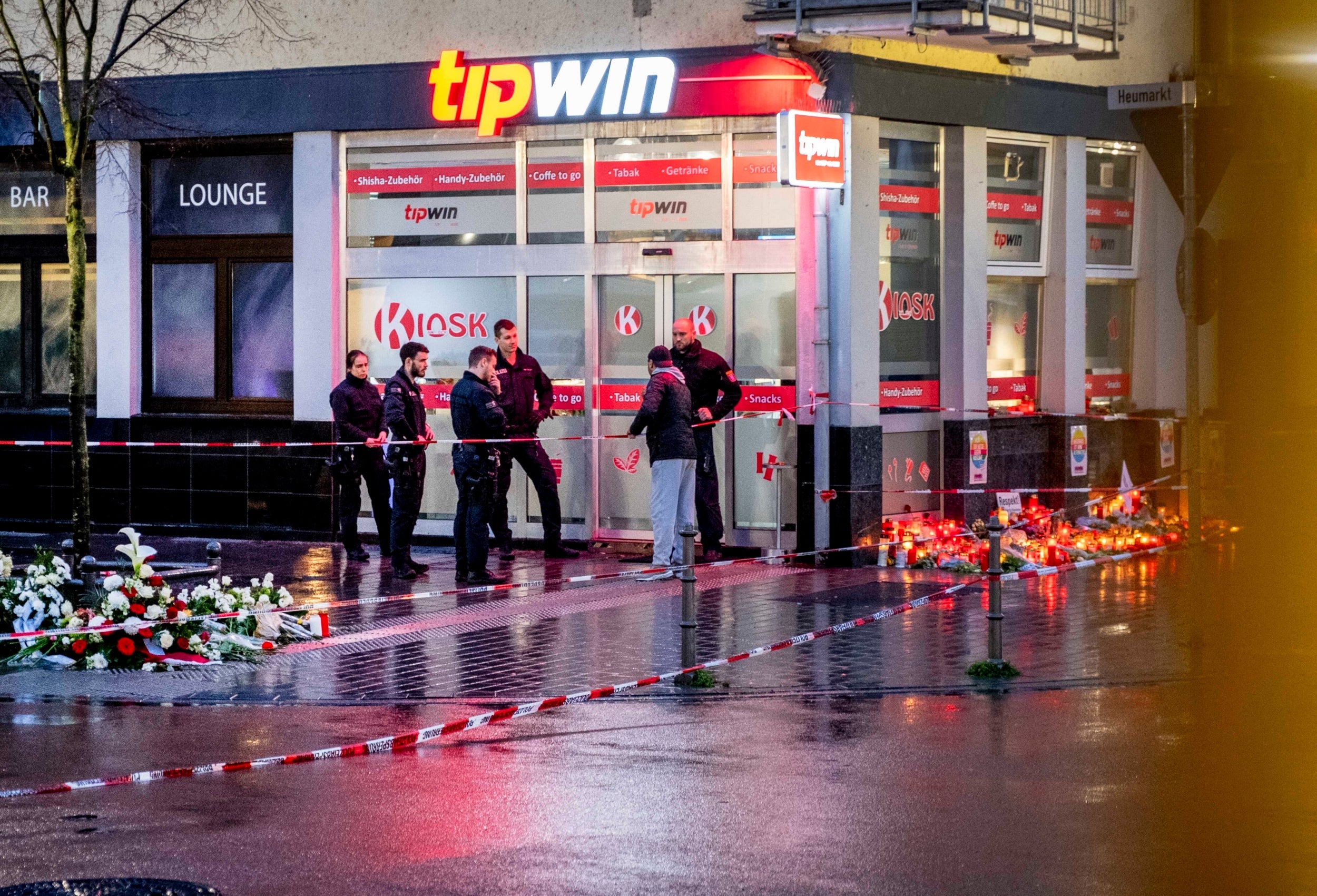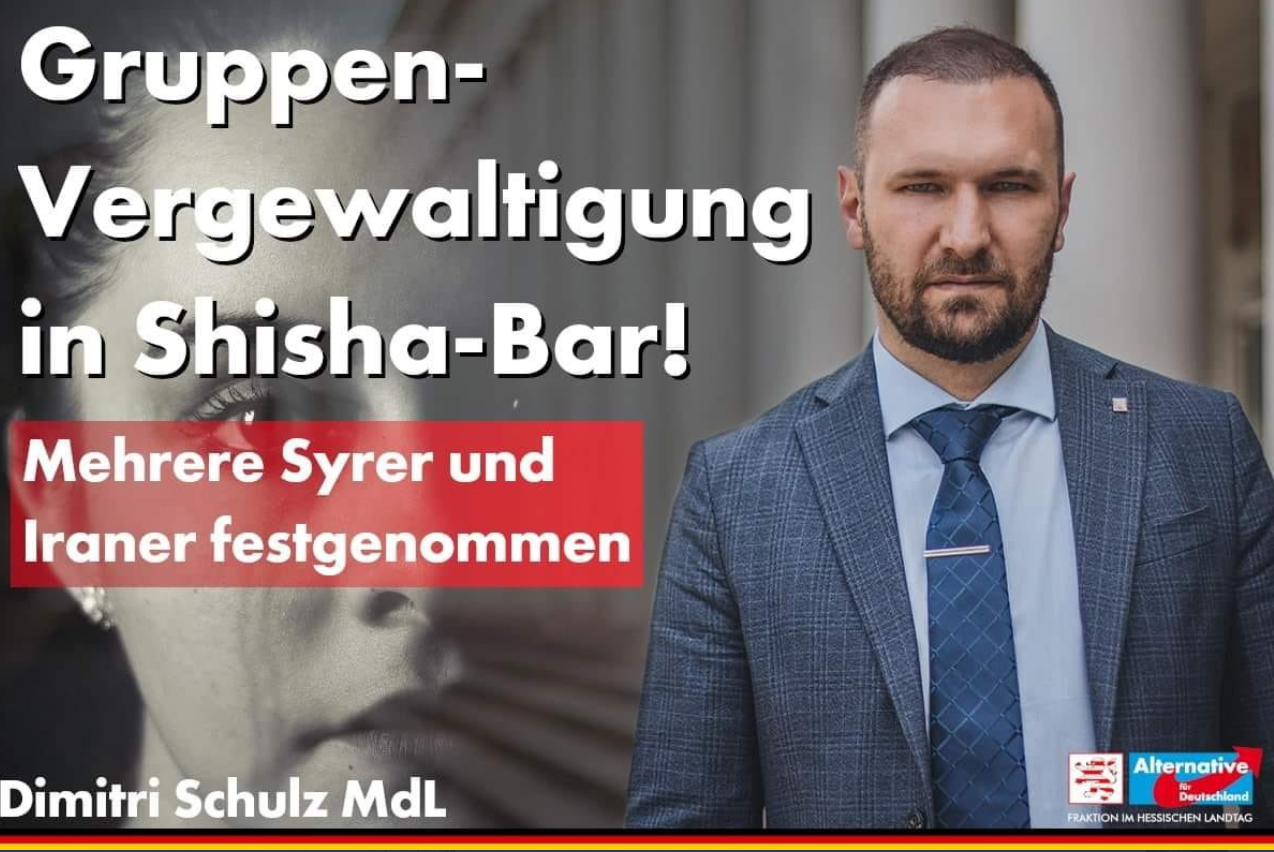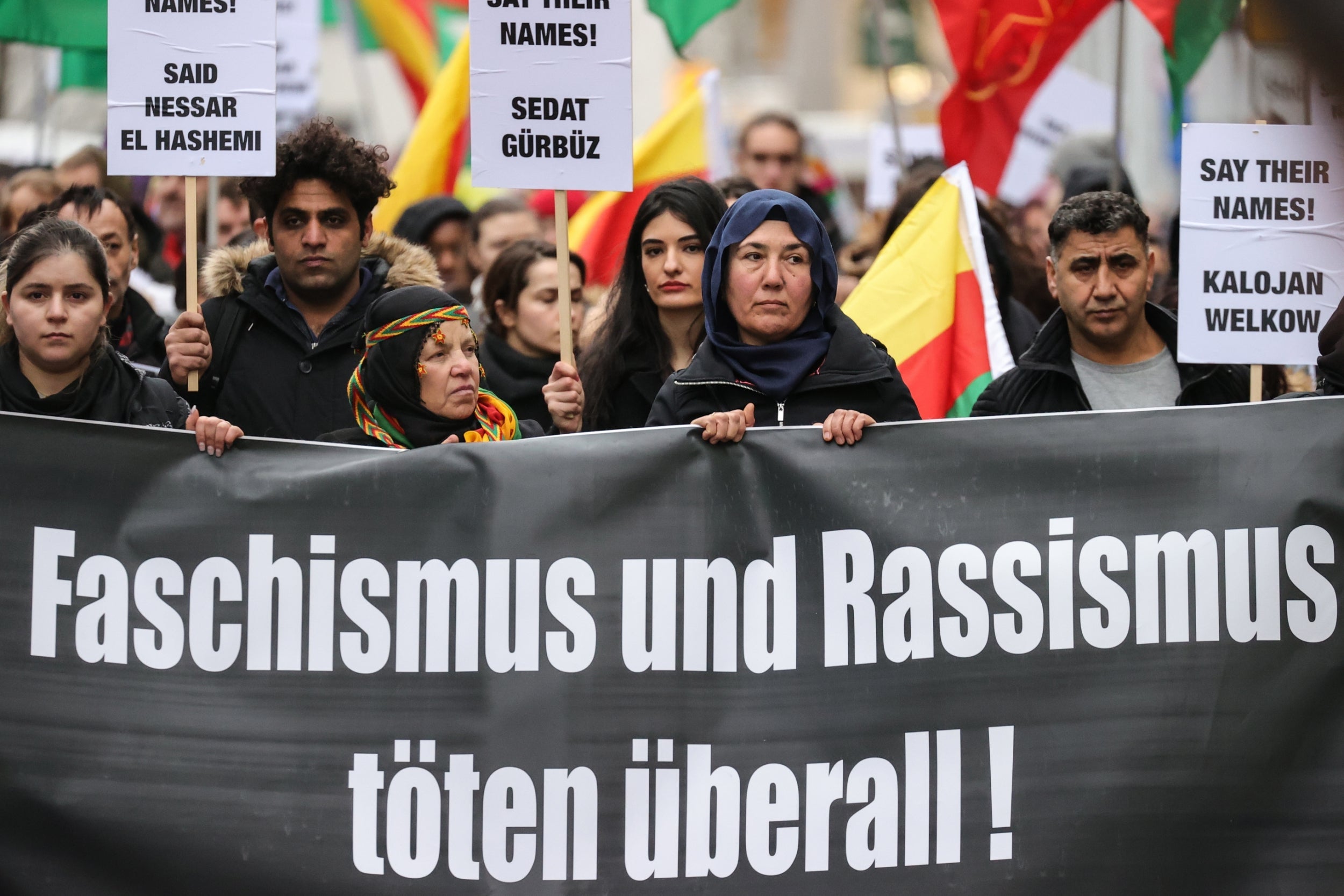Deadly shisha bar attack followed targeting of establishments by police and far right, Germany’s Arab community says
‘They used racist stereotypes about migrants, connecting shisha bars to crime, drugs and dirtiness,’ left-wing MP Lorenz Gosta Beutin tells Lemma Shehadi in Berlin


After a eugenicist gunman opened fire on two shisha bars in Germany on 19 February, politicians and activists have linked the attack to a far-right campaign against the traditionally Middle Eastern establishments.
The gunman, who held extremist views that were directly in line with those of the right-wing political party Alternative for Germany (AfD), shot dead nine people of migrant backgrounds, before going on to kill himself and his mother.
In recent years, Germany’s shisha bars have become associated with organised crime groups, often described in the German press as “Arab clans”. The opening scene of the popular television series 4 Blocks, about German-Lebanese gangsters in Berlin, is set in a shisha bar.
In the wake of the shootings, bar owners say they have been unfairly characterised.
“When the authorities see Arabs or Muslims grouping together, they think we’re part of a criminal gang,” says Mohammad Hallak, owner of the shisha bar Infiniti in Berlin’s Neukölln district. “They don’t understand our communal culture. We like to gather and spend time with our family and friends.”
The police raided his bar six times last year — each time, he says, with the press waiting outside as the police controlled the premises and interrogated patrons, often for hours.
He took a local newspaper to court for reporting that he was part of an “Arab clan”, but lost on the grounds of freedom of speech. He has an ongoing lawsuit against the German federal government for the inconvenience caused by previous raids, which he says were disproportionate. “The police came heavily armed in a convoy of about 10 cars, and over 80 officers.”
“Right-wing parties and the media are pushing a campaign against us. When I came to Germany 22 years ago, there wasn’t this hatred,” he says.
Since 2018, the AfD has targeted shisha bars in parliamentary and social media campaigns, seemingly to fuel negative perceptions of Germany’s Muslim minorities.
“They used racist stereotypes about migrants, connecting shisha bars to crime, drugs and dirtiness,” says Lorenz Gosta Beutin, a parliamentary speaker and member of Germany’s The Left Party, who published images of the campaigns on Twitter immediately after the attack.
Among these was an AfD poster from 2018, which shows a man of seemingly Middle Eastern origin smoking a shisha pipe, with the text: “Is there enough state control of shisha bars?”
“There have been instances of organised crime and money laundering connected to shisha bars, and the state has a duty to fight it. However, we should be cautious about criminalising shisha bars,” says Sawsan Chebli, a state secretary for Berlin and member of the Social Democratic Party.
“The AfD abused the topic of shisha bars. We should closely watch what they are doing and see if it violates our constitutional law,” she adds.
Another image, published on Facebook on 28 January by AfD politician Dimitri Schulz, said: “Gang rapes in shisha bars. More Syrians and Iranians arrested.” The image included a portrait shot of Schulz, an MP for the town of Wiesbaden, the capital of the same federal state as Hanau. The attack at the Hanau shisha bar came less than a month later.

In an email to The Independent, Schulz described the image as “only a usual picture post on Facebook”. “I was referring to a newspaper article which reported that a suspected gang rape took place in a shisha bar, with several Syrians and Iranians arrested as suspects,” he wrote.
But the incident, as detailed in the Bayern Reporter, happened above a shisha bar, not within it. “I hope the perpetrators will be brought to justice and that the Syrians and Iranians will be sent home quickly by plane,” Schulz added.
Schulz denied any connection between the image and the shooting in Hanau. He condemned the attack, and described the gunman as “an apparently mentally ill person who was racially motivated in his delusion”.
The increase in publicised police raids on shisha bars, particularly in Berlin, are also part of the problem, some activists say.
“Some police operations have followed the logic of general suspicion without evidence,” says Manes Weisskircher, a political scientist at the Technical University of Dresden.
“The AfD’s campaigns are working. There are more [police inspections] of shisha bars as a result,” says Beutin.
The raids in Neukolln were framed as routine random inspections for licensed shisha bars. However, according to several bar owners and managers in the area, the police often came heavily armed, and accompanied by the press and the local mayor.
“The police would pack boxes of my tobacco supplies in white bags, which they claimed was for inspection. They made it look like a bust in front of journalists who were waiting outside the cafe,” says Hallak.

Part of the media attention centred on a regular guest at Infiniti, Nidal R, a notorious gangster who was killed in gang violence in September 2018. “It’s not my job to ask what he was involved in,” says Hallak, “I just want to create a hospitable environment for my guests.”
On the same street, shisha bar owner Abu Ali, who asked not to give his full name, agrees. “We happily comply with the police’s random inspections. But recently, we found that what we read about ourselves in the papers was very different to what actually happens in our cafe.”
Unlike the owner of Infiniti, Abu Ali will not be making any formal complaints. “Our community doesn’t have proper representation. It will be the word of Arabs against Germans, and they [the Germans] always have the stronger voice,” he adds.
Some cafe owners and visitors describe regular transgressions in shisha bars. But these were unrelated to organised crime. “Sometimes the shisha bar owners let minors in, sometimes the guests get rowdy, they have unregistered employees, or the health and safety procedures are not up to standard,” says one local resident who preferred not to be named.
“The German-owned shisha bars will always get preferential treatment from the police over those run by Arabs,” he adds.
The Berlin police have been approached for comment.
Since last week’s attack, however, the public debate on shisha bars may be changing. At an anti-Nazi demonstration in Neukolln in the immediate aftermath of the shooting, protesters held signs saying, “Raid Nazis, not shisha bars.”
“An alternative view of shisha bars has now emerged in public debate,” says Weisskircher, “That their clients are also potential victims of racist violence.”
Join our commenting forum
Join thought-provoking conversations, follow other Independent readers and see their replies
Comments